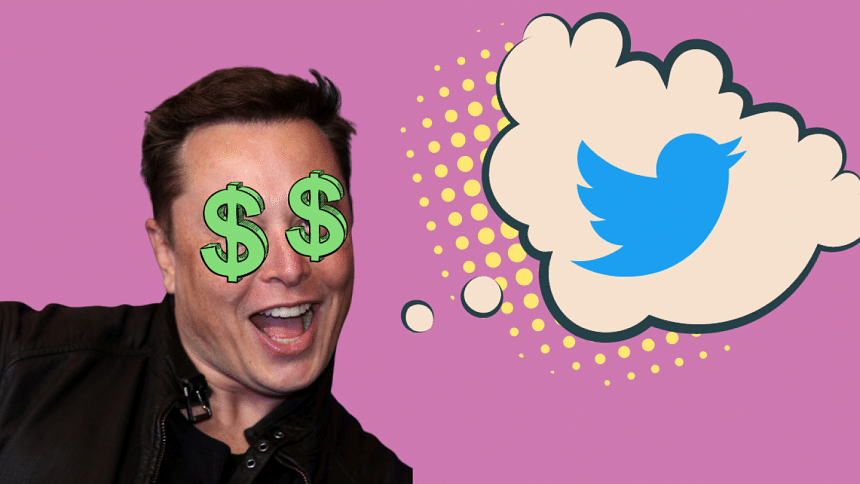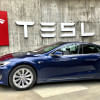Why I’m all for Elon Musk buying Twitter

After buying a 9.2 percent stake in Twitter and becoming its biggest shareholder, Elon Musk announced an offer last week to buy the company for USD 54.20 per share, in cash. The next day, the company's board responded with a "poison pill" consisting of a new "shareholder's rights plan"—basically giving certain shareholders the right to purchase more stock (possibly at a discount) if Musk attempts to seize control. The signal was clear: the Twitter board intends to fight Musk's bid to take sole ownership of the company.
Like everyone, I have no idea what Musk's intentions are with Twitter. But to me, it appears what we need urgently are more platforms devoted to free speech and discourse, that are less willing to censor.
According to journalist Glenn Greenwald—whose publication about the global surveillance programmes based on classified documents provided by Edward Snowden contributed to The Guardian's 2014 Pulitzer Prize—tech monopolies such as Facebook, Twitter and others have become "hives of censorship and speech control." But that is not even the primary problem. The biggest problem is that "they are now key weapons in maintaining closed propaganda systems, always aligned with the US security state."
In a recent TED Talk, Musk said, "My strong intuitive sense is that having a public platform that is maximally trusted and broadly inclusive is extremely important to the future of civilisation." This, along with other comments he has made elsewhere, indicates that Musk wants Twitter to have more free speech and less censorship.
Among his other ideas, Musk also mentioned how he would like for the social media giant to allow posts on alternative (some may say controversial) views to exist, rather than them getting deleted (as they are now), allowing individuals to make up their own minds about such topics, rather than having our tech overlords lording over what we should see and think. To me, that does not sound like a bad idea, particularly because the number of times that big tech wrongly (or rightly in their case to protect powerful interests) deleted or flagged news items is simply uncountable.
Another interesting suggestion he made was having people be put in "time out" for posts that everyone can agree are problematic—i.e. posts that are in the "grey zone" are fine, but posts that are clearly calling for violence against someone or some group are not—rather than those people having their accounts permanently deleted. This, too, is an interesting idea. Just think about how many times you, as an individual, were wrong about something, or held a view that was (factually or otherwise) incorrect. How did you manage to correct your own belief? Was it when someone just shut you up? Or was it when someone else showed you the merits of an alternative viewpoint and the demerits of your own? I would guess it was the latter. And it's no different from what we have seen throughout history: the cure to bad ideas is not censorship, because the person or group being censored will continue to hold such beliefs and simply propagate them using underground methods; it is more good (or correct) ideas.
If we are to have an inclusive society, we can't simply "cancel" those we don't agree with. We have to hear them out and see if their arguments have any merit. Perhaps we can learn something from them—if nothing else, at least a stronger understanding of why our own beliefs are correct and theirs are not. And it is only by listening to them that we can encourage them to listen to our own arguments.
Given all this, what should shock us all is how the US corporate media has been panicking over Musk's suggested ideas for Twitter. Or perhaps not, given their track record of unashamedly stoking wars in Iraq, Afghanistan, Libya, Syria, Somalia, etc. One went so far as to write this (ironically) on Twitter, "I am frightened by the impact on society and politics if Elon Musk acquires Twitter. He seems to believe that on social media anything goes. For democracy to survive, we need more content moderation, not less."
In the 21st century (with the age of information and all that), I am shocked when I see comments like this—even though I don't believe they should at all be censored. What I would like to ask its author is: Who decides what to moderate? Who decides who should moderate? Are we going to have the people elect these moderators? If not, how is that democracy, regardless of what definition of democracy you subscribe to? And when did "content moderation on Twitter" become a fundamental pillar of democracy?
Even if you (either on the left or right, which I believe are mostly useless labels that our ruling oligarchs use to divide us) believe that moderation of views other than yours is necessary, what is to guarantee that in future, the other side (or some complete authoritarian psycho) will not take over and simply censor views closer to your heart? Limited censorship (or not so limited, as in today's case) have been tried and failed throughout history. And there are plenty of reasons for that. Alternatively, if the success of your political movement, national ambitions, or other objectives depends upon the need to censor dissent and silence your adversaries, that's a pretty strong indication that you have zero confidence in the beliefs you want to propagate—probably for good reasons.
Funnily, the other argument I have been seeing in the corporate media—owned by billionaires like Jeff Bezos and Rupert Murdoch, etc—is that billionaires should not have control over (social) media platforms. There is not much to add to that, I think.
Ultimately, there are many reasons to be sceptical about Musk's motives and, even if pure, his ability to restore free speech to Twitter and to the internet in general. Way too many powerful interests globally (and for us here in Bangladesh, nationally too) need censorship. But, as Greenwald explains, "the panic reveals so much."
For those who still remain unconvinced as to why we need to be a bit more "absolutist" about "free speech"—as Musk claims to be—I would like to share with you a quote from an individual who is perhaps the most published human being alive, who is currently languishing in Belmarsh (maximum security) Prison in the UK for revealing the biggest war (along with countless other) crimes of this century: "The sun of truth is the only guiding beacon civilisation has at its disposal. If we are to flourish in reality, we must ultimately use it to chart our course. To do otherwise is to drift aimlessly in the dark, decoupled from the real world and hearkening to every imagined wave."
How are we to find that truth, without free speech?
Eresh Omar Jamal is an assistant editor at The Daily Star. His Twitter handle is: @EreshOmarJamal

 For all latest news, follow The Daily Star's Google News channel.
For all latest news, follow The Daily Star's Google News channel. 








Comments